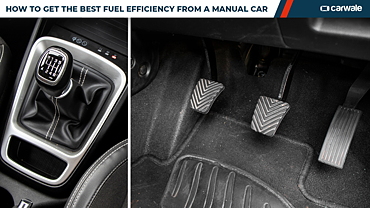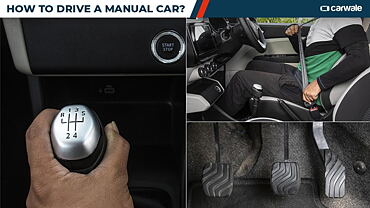
Indian consumers, nowadays, have begun to demand cars that provide the power and performance of an SUV, while also giving the comfort and the premium feel of a sedan. This is probably why manufacturers have started developing products that will cater to these needs. Enter the crossover segment which has managed to capture the Indian buyer’s imagination.
Given that the segment has grown significantly from its creation, we have decided to compare the top three players in the piece of the Indian automotive pie. They are the Renault Duster, Hyundai Creta and the soon-to-be-launched Maruti Suzuki S-Cross.
French automaker Renault brought the Duster to India when Renault was not really a well-known brand. The introduction of this SUV then, changed their fortunes. The other crossover is the Hyundai Creta, which was recently launched and won acclaim in no time. Similar is the case with Maruti Suzuki's S-Cross, which was unveiled recently and will be launched for the Indian masses next month.
Let’s see what the three vehicles have to offer and how they will fare against each other in the Indian market, in another edition of CarWale comparison.

In terms of proportions, the Duster is the biggest of the lot - hands down. At 4,315mm, it is the longest of the lot as the Creta and S-Cross measure 4,270mm and 4,300mm respectively. The width and height of the Duster, at 1,822mm and 1,695mm is also more than the Creta (1,780mm, 1,630mm) and the S-Cross (1,765mm, 1,590mm). Though being massive and having a mighty presence, the Duster does not appear to be as sporty and elegant, or premium as the Creta or the S-Cross.

The S-Cross is a sporty looking car that gets a three piece horizontal slat chrome grille, headlamps with projectors, DRLs and fog lamps. The vehicle also sports a body cladding that gives it a muscular appearance, but is nowhere close to the huge wheel arches of the Duster. Same is the case with the Creta, which is essentially a smaller SUV and adopts the styling of the Santa Fe. It also comes equipped with projector headlamps, DRLs, roof rails, alloy wheels and OVRMs integrated with side indicators. It is only the Duster which lacks projector headlamps and just gets smoked headlights. On all three vehicles, there is enough amount of chrome that will appeal to the Indian customers who do not mind a little bit of bling.
However, beauty is a complex word as everyone has different tastes, so looks are considered subjective. It will eventually depend on the prospective buyer to decide which car looks the best for them.


The last upgrade that Renault brought in the cabin of the Duster includes an arm rest, new gear shift indicator and a new multi information display with service reminders. Though the Duster at present gets the segment first ECO mode feature, cruise control and speed limiter, it still misses out on some features that the Creta and the S-Cross get. Even if the Duster gets a rear AC unit with independent controls for rear seat passengers, the car misses out on automatic climate control, leather seats, telescopic steering (only tilt is available), a touch screen system and turn Indicators on ORVMs. The other two cars get all these features. Furthermore, the S-Cross features rain-sensing wipers and auto headlamps, and the Creta gets two 12V power outlet as an edge.
On the safety front, all the three vehicles get ABS and EBD as standard on the top-spec variants, but miss out on the traction control system. However, the Creta gets brake assist like the Duster, but additionally gets ESP and six airbags (others get only two) making it stand out.

All the cars get a display for the stereo system that is neatly integrated into the centre console, but the Creta gets an 1GB internal storage in the music system like other Hyundai products. The Creta will still not show you the distance to empty or the average fuel consumption and if you still do listen to your music through CDs, the Creta will disappoint you as it doesn't get a CD player.
Some might prefer the beige-black interior in the Duster, while some might crave for an all-black treatment with some silver inserts in the cabin like that of the S-Cross and Creta. There will never be a consensus when it comes to feel and opinion as some might prefer the sporty look, while some might prefer the classic look. But when it comes to features, the Duster certainly lacks many features which the other two new products come equipped with.

For the Indian market, the S-Cross will be offered only in the diesel variant and there will be no petrol variant. So in terms of petrol variants, the Duster's RXL top-end version and the Creta's 1.6 SX Plus version lock horns with each other. The Duster loses out against the Creta on power figures as the former's petrol powerplant is the 1.6-litre four-cylinder unit that churns out 103bhp of power and 145Nm of torque, while the latter's 1.6-litre mill produces 122bhp of power and 154Nm of torque. The petrol Duster only comes with a five speed manual gearbox and delivers a fuel economy of 13.05kmpl as against the Creta's six-speed transmission and fuel efficiency of 15.29kmpl.

Coming to the oil-burners, the S-Cross employs the company's conventional 1.3-litre multi jet diesel motor that produces 90bhp of power and 200Nm and comes mated to a five-speed manual gearbox. But there is also another variant which has a 1.6-litre multi jet unit under its hood. This powerplant churns out 120bhp of power and 320Nm of torque and comes matched to a six-speed manual transmission.
There are no changes to the powertrain of the Renault Duster available in the market now and it comes powered by the same renowned 1.5-litre K9K diesel mill that produces 85bhp of power. The other turbocharged version produces 110bhp of power and 250Nm torque. So the diesel Creta completely thrashes all of the previous variants of the two rivals. The 1.6-litre U2 VGT CRDi engine under the hood of the 1.6 SX (O) Creta churns out 126bhp of power and 265Nm of torque. Maruti Suzuki has not revealed the fuel economy figures yet, so the Creta still gives a good fuel efficiency at 19.67kmpl following the Duster closely which delivers 19.87kmpl.

So in terms of performance, each car has something to prove. The S-Cross has the largest amount of torque, the Creta is available in an automatic variant and the Duster comes as a four-wheel drive version apart from the regular 2WD models.
The Duster starts at Rs 8.30 lakh, while the Creta starts at 8.60 lakh and since we are talking about petrol cars here, the S-Cross doesn’t come into the picture yet as there is no petrol variant for the same. But for the oil-burner, we believe Maruti Suzuki S-Cross will be able to easily undercut the diesel variant prices with its base version. However, the base variants do not get all the features that make these crossovers the perfect package and to avail all the wizardry from the long equipment list, one will have to look at the top-spec variants.
The Hyundai Creta's most expensive and fully loaded version is the 1.6 SX (O) variant priced at an ex-showroom price of Rs 13.60 lakh. Launched in all-wheel drive avatar last year after having operated with only a two-wheel drive option in the country so far, the Renault Duster's top-end 110 PS RxZ AWD is priced at Rs 13.55 lakh, while the standard 2WD 110 PS RxZ Diesel (Opt) costs Rs 12.43 lakh.
The Duster might be a little cheaper than the Creta, but lacks a lot of features that the Creta or the S-Cross. The Creta is a complete package and with a three-lakh kilometres warranty, Hyundai has put forth a product that is giving a tough time to these competitors. It now completely depends on the pricing of the Maruti Suzuki S-Cross to decide which of these three products make a customer feel worthy of the money he decides to put on his car.






